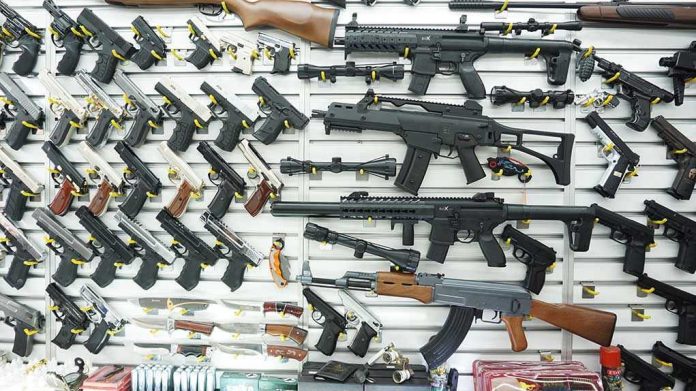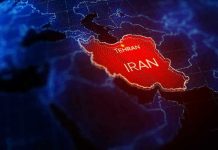
Los Angeles Chargers linebacker Denzel Perryman’s recent arrest on felony weapons charges has sent shockwaves through the NFL community, raising pressing questions about athlete conduct, California’s strict gun laws, and the future of the Chargers’ defense.
Story Snapshot
- Denzel Perryman, a veteran Chargers linebacker, was arrested August 1 in South Los Angeles for felony weapons charges after deputies found five firearms in his vehicle.
- Two of the discovered firearms were classified as assault-style rifles, leading to Perryman being held without bail and facing a court date on August 5, 2025.
- The incident disrupts the Chargers’ defensive plans and puts Perryman’s NFL career at risk pending legal and league disciplinary outcomes.
- Debate intensifies over California’s gun laws and the broader implications for personal freedom, due process, and accountability among public figures.
Perryman’s Arrest Rocks the Chargers and NFL
On August 1, 2025, Los Angeles Chargers linebacker Denzel Perryman, a ten-year NFL veteran and former Pro Bowler, was pulled over in South Los Angeles for vehicle code violations. Deputies from the Los Angeles County Sheriff’s Department discovered five firearms in his car, including two assault-style rifles, resulting in Perryman’s immediate arrest on felony weapons charges. He is being held without bail at a Los Angeles County facility and is scheduled for a court appearance at Inglewood Court on August 5, 2025. This incident marks the first time Perryman has faced criminal charges, making the event even more significant for the player, team, and league.
Statements from the Chargers and Perryman’s agent, Ron Butler, have acknowledged the arrest but offered few details, emphasizing a commitment to cooperate with authorities. The Chargers, now dealing with the loss of a key defensive leader, noted, “We are aware of a matter involving Denzel and are gathering information.” Butler added, “We remain confident that the matter will be resolved fairly and in accordance with the law.” Authorities have yet to disclose the origin or intended use of the firearms found in Perryman’s possession, and the NFL has not announced any disciplinary measures as the legal process unfolds.
California Gun Laws and Legal Ramifications
California enforces some of the nation’s strictest gun laws, especially regarding assault weapons. Under current state statutes, possession of assault-style rifles without proper authorization carries severe penalties, including the potential for multi-year prison sentences. Legal analysts have highlighted that even first-time offenders in cases involving multiple firearms can face aggressive prosecution. Perryman’s lack of prior criminal history may factor into the legal strategy, but the sheer volume and type of weapons at issue make the case particularly serious. The NFL’s personal conduct policy also allows for league-imposed penalties independent of court outcomes, so Perryman could face suspension or other disciplinary action regardless of the verdict in court.
The location of the incident—South Los Angeles—adds another layer of scrutiny. Law enforcement in this area routinely encounters illegal firearms, and prosecutors are under pressure to enforce the law strictly given the region’s challenges with gun violence. While the facts of the Perryman case are still unfolding, the broader context makes leniency less likely, especially for public figures whose actions draw national attention. As a result, the potential consequences for Perryman’s freedom and his football career are significant and could serve as a cautionary tale for other athletes navigating state and federal gun regulations.
Impact on Chargers, NFL, and Broader Debate
Perryman’s absence leaves a major hole in the Chargers’ defense, just as the team prepares for the 2025 NFL season. Team officials are scrambling to reassess defensive strategies and player rotations, with some analysts predicting a challenging road ahead for the franchise if Perryman is unavailable for an extended period. The NFL, already facing public scrutiny over player conduct, must weigh its response carefully to avoid backlash from fans demanding both fairness and accountability. Some commentators have called for patience and due process, while others argue that public figures—especially those entrusted as role models—should be held to higher standards.
This high-profile case has reignited national debates over gun rights, personal responsibility, and the reach of government regulations. Conservatives have long argued that law-abiding citizens should not be penalized by overreaching gun laws, particularly when such laws run counter to constitutional protections. However, California’s hardline stance reflects a very different philosophy, placing individual rights in tension with state-imposed restrictions. The outcome of Perryman’s case may set a precedent not only for athletes but also for any citizen caught between conflicting interpretations of the Second Amendment and evolving state statutes. The NFL and its teams will likely face renewed calls to educate players about legal compliance, while fans and advocacy groups on both sides of the gun debate watch closely for the next developments.













